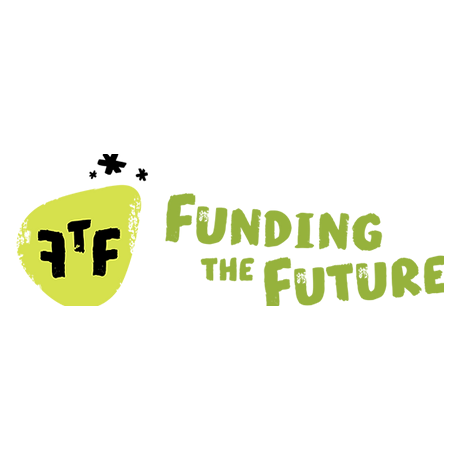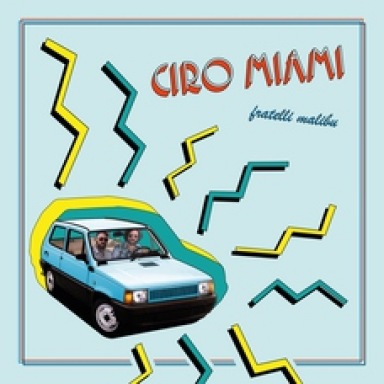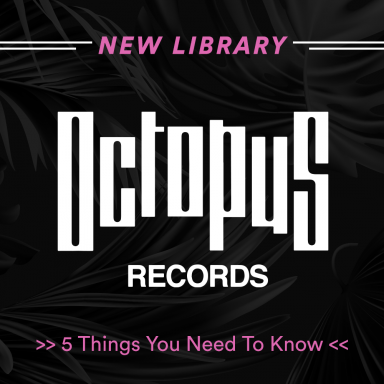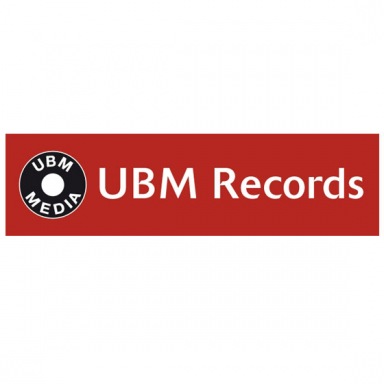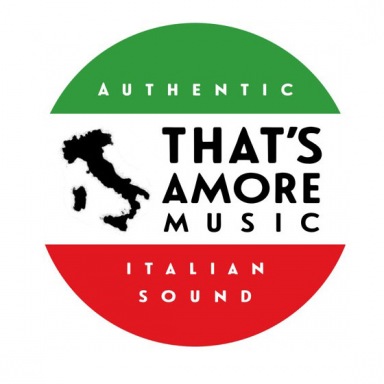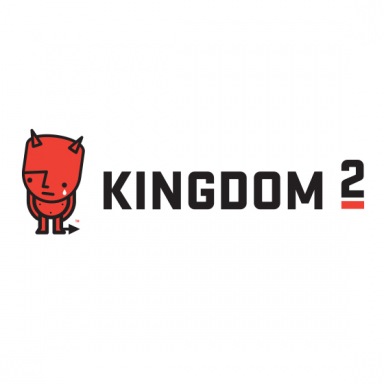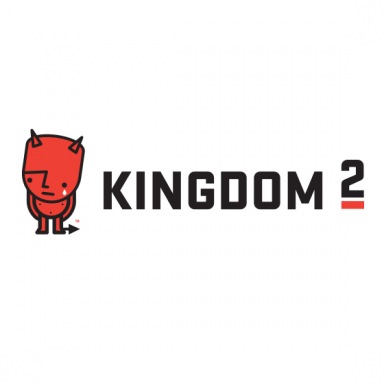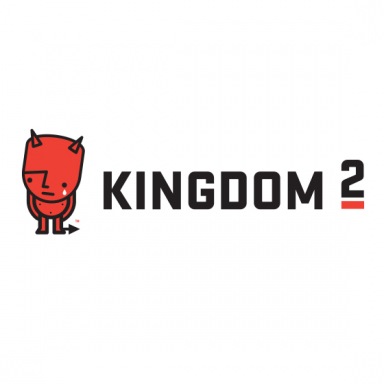How Kingdom 2 Music Helps Fund The Future
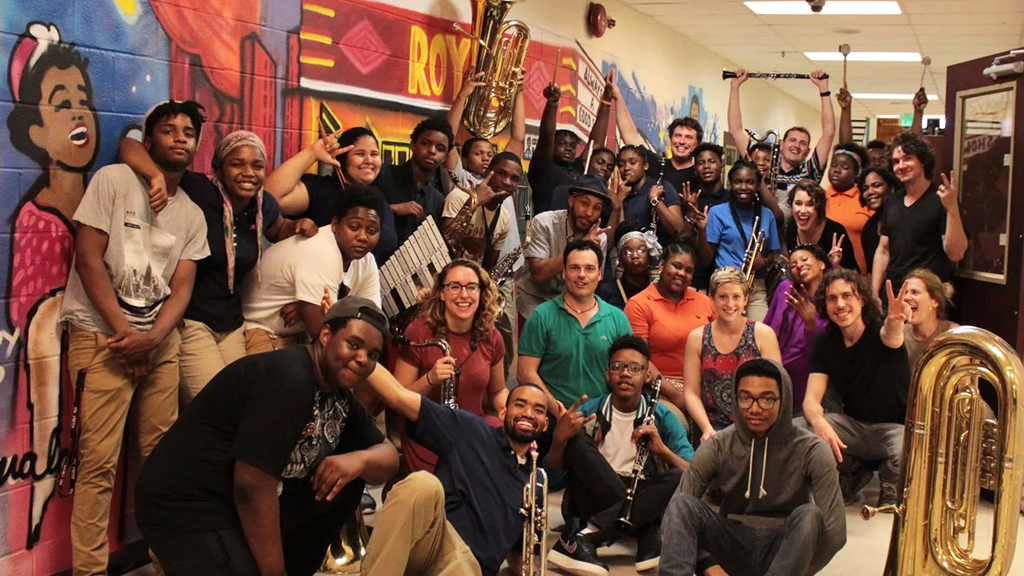
Kingdom 2 Music is one of APM Music's essential libraries. With 275 albums in all genres, the library's output is one of the best music sources for film, tv, games, advertising, and sports. But aside from music, Kingdom 2 music's founder and chief songwriter, Gooding, also founded 'Funding the Future,' an organization that teaches kids the importance of financial literacy.
We spoke to Kingdom 2 artist Carter Hulsey, a singer-songwriter who is one of the prime movers of Funding the Future.
Funding for the Future is such a unique advocacy. How did you get into this?
Carter: I met Gooding several years ago on a tour down in Texas. We played a two-week run together and became fast friends. FTF came up in the first few nights of after-show hang-outs, and his passion for financial literacy and how desperately our schools needed it was inspiring. It also opened my eyes to the fact that I wasn't taught anything about money at school and how drastically that might have changed things for me.
Why is it critical for kids to be financially literate?
Carter: I have to quote Gooding on this one because I heard him sum it up best in an interview. When asked, "Why in the world is a rock n roll band teaching kids about money? Shouldn't you all be throwing TV's out of hotel windows?" To which he replied, "I think the most rock n roll thing is that everyone gets a fair shot at life. And having financial literacy helps give people that chance". We expect our young people to graduate high school and then immediately start making some of the biggest decisions of their lives. And the fact that most schools haven't given them any opportunity to learn about money is insane to me. We need to educate our youth on money and how they can use it to get where they want to go and to think of it as a tool.
Art and money don't always go together, but you made it work by using music to promote financial literacy. What's the secret?
Carter: Honesty. That's why it works. We go to high schools and share our life experiences with the students. We are not their teachers or parents, we are not bankers, we are not selling anything, and there is no test at the end. We share through our music and the financial literacy presentation how life has been up to this point for us and the lessons we've learned. Good and bad. I don't use a statistic to show how credit cards can be dangerous. I tell my story of credit card debt and life on tour. How it impacted me, and how difficult and inconvenient it is to get out of debt.
Finance is complicated. How do you make it accessible to kids?
Carter: We cover basic things like credit scores, credit cards, student loan debt, needs vs. wants, budgeting, etc. The whole goal is to get the conversation about money started. To get the students thinking about money as a tool they can use and realize it will affect all aspects of their lives.
We live in financially challenging times. What can the youngsters do right now to make things easier?
Carter: Making money a part of their day every day would be a great start. Making a budget, setting some simple goals, and then trying their best to look at things long-term. So much of life is delayed gratification, which can be hard to see when you're young.
Many kids today are investing in the stock market or trading NFTs and cryptos using accessible apps like Robinhood and Opensea. Is this a good thing?
Carter: I'm no financial advisor, but for me, these are not things I invest in. I land on the side of time-tested investments like Roth IRAs. I tell the students that investments like crypto, NFTs, and day trading are all massive time investments as well. I like making money, but I like making music more. I don't plan to spend hours of my day looking at what the stock market is doing. Instead, I rely on safer investments and the advice of financial planners who do enjoy spending hours a day watching the stock market.
What's a Funding for the Future Live event like? How do you organize it?
Carter: The shows start like all rock n roll shows start, loud music and high energy. We play a 25-minute set of music, then show a quick video highlighting our musical journey up to this point. Next, go right into a 25-minute presentation on financial literacy. If time allows, we then end with a Q&A allowing the students to ask questions about money or music.
What are the top financial principles that every kid should know?
Carter: I tell the students that most things with money are a mindset. Opening savings and a checking account immediately help us start thinking about money. Investing time into budgets and future goals gives us something we can work towards and look forward to.
A music career doesn't always result in financial success. Should this discourage aspiring rock stars?
Carter: I've been fortunate enough to make a good living with music, and I'm grateful for that, but I know that regardless I'd still be playing and writing in some capacity. It's just what I'm supposed to be doing. Whether it's music, some other form of art, or watching stock market things for hours a day, it's important we enjoy the journey we are on. That's not to say there won't be times of trial and discouraging days, but for me, as long as the good days far outnumber the bad days, I'm going to keep writing and playing.
Tell us about the documentary and any upcoming live events.
Carter: Gooding is working daily with director Lonny Quattlebaum out of Wichita on the documentary. There has been a ton of filming and pre-production, and we are expecting to have the trailer out soon. Both Gooding and I are also heading out this Spring for another 50-show tour. We will be doing FTF events in Iowa, Missouri, Colorado, Wyoming, South Dakota, Kansas, Michigan, Pennsylvania, Florida, and New York.
